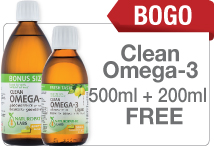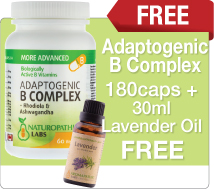*Certified Organic
Format
 Powder
Powder
4.25g X 3!
Dosage
Apply to chapped, dry lips as needed.
Important Information
4.25G + 4.25G + 4.25G Lip Balm Stick
- Moisturizes & Repairs Dry Lips
- With Aloe, Coconut Oil & Vitamin E
- No Petroleum or Phthalates
- Fresh, clean peppermint taste
Related Videos
No Related VideosArticles by a naturopathic doctor.
Since 1968 NOW has been a leader in the natural products industry. NOW Foods is an award-winning and highly respected manufacturer of vitamins, minerals, dietary supplements and natural foods. Now Foods brings you over 1600 Natural Foods, Supplements, Sports Nutrition and Personal Care Products. NOW supplements are high quality products at affordable prices.
vitamin E
vitamin E is a group of fat-soluble vitamins that act as antioxidants and thus neutralize free radicals. Free radicals are unstable molecules with an unpaired electron that are extremely reactive and damage surrounding cell membranes, fats, and fat soluble vitamins and nutrients. We encounter free radicals through environmental exposures, such as cigarette smoke, air pollution, and ultraviolet radiation from the sun (UV rays).
In doses less than 150IU per day, Vitamin E has been shown to increase life-span (by reducing all-cause mortality). Vitamin E is well known for the prevention of cardiovascular disease in a few different ways. First, it decreases platelet aggregation (clot formation), thus allowing the blood to flow more freely and bring more oxygen to the tissues. Also, as an antioxidant, vitamin E protects our artery walls from damage and prevents the oxidation of LDL cholesterol, both of which contribute to arterial plaque formation when left untreated.
Antioxidant properties allow vitamin E to be useful in potentially helping to prevent cell growths by reducing free radical damage to cellular genetic material. Vitamin E is also believed to be an anti-aging vitamin because its antioxidant effects reduce the cell damage that can lead to visible aging. Cataracts are caused by free radical damage of the lens of the eye and therefore vitamin E can help to prevent this damage. It has also been shown to be anti-inflammatory by inhibiting inflammatory pathways in the body. Vitamin E has been found to be protective against Alzheimer's disease, atherosclerosis, and diabetes mediated liver damage, as well as PMS. It is also used to treat many existing conditions including infertility, fibrocystic breasts, anemia, and topically for scars.
Subtypes of Vitamin E
There are two groups of compounds that make up vitamin E: tocopherols and tocotrienols. Each group contains four different forms that are named by the Greek letters alpha, beta, gamma and delta. The most biologically prevalent of these forms is the naturally sourced d-alpha-tocopherol.
Although previously overlooked due to their lower levels, recent research has brought tocotrienols into the spotlight. It has been found that tocotrienols possess powerful neuroprotective, cell supporting and cholesterol-lowering properties outside those exhibited by tocopherols. In certain tumors, tocotrienols have been found to directly regulate cell signalling to promote increased cell death during chemotherapy, while also helping to reduce tumor resistance and side-effects of treatment. This has been particularly studied in breast and colon cell growth patients.
Recent research suggests that the various forms of vitamin E are not redundant in their health benefits, and thus a supplement containing all subgroups of both tocopherols and tocotrienols is preferred for general supplementation, although specific conditions can be targeted with certain subgroups.
Natural vs. Synthetic Vitamin E
Synthetic alpha-tocopherols are listed as "dl" (dl-alpha-tocopherols), as opposed to their natural d-alpha-tocopherol counterparts. These synthetic mixtures contain equal amounts of eight different stereoisomers of alpha-tocopherol, four of which are absorbed, and only one of which is the naturally occurring d-alpha-tocopherol. Thus, although synthetic alpha-tocopherols are less expensive, they are half as active by dose as naturally sourced options and may have different side-effects (see below).
Controversy
There has been some controversy about the beneficial effects of vitamin E and whether or not supplementation may actually be detrimental. One well publicized study showed that high-dose vitamin E supplementation was associated with a slightly reduced life span (increased risk of all-cause mortality). Another study showed that vitamin E supplementation may be implicated in increased risk of prostate tumors after over one year of stopping supplementation. Co-supplementation with selenium eliminated this increased risk and an opposing study found that high blood levels of alpha and gamma-tocopherols in men was associated with a 50% lower risk of prostate tumors. It goes without saying that further research is required. It is also interesting to note that the negative prostate study involved the use of synthetic vitamin E and the all-cause mortality study failed to specify the type of vitamin E used. Thus, whether or not the negative effects are unique to the synthetic forms has yet to be determined, but in any case males supplementing with vitamin E in higher doses should co-supplement with selenium to avoid possible negative effects.
It is also interesting to note that it has only been in the last few years that vitamin E research has begun studying each subset of tocopherol and tocotrienols separately. Thus, although high dosages of one form of vitamin E may be detrimental, others may actually elicit positive effects (eg. High dose alpha-tocopherol vs alpha-tocotrienols) and dosage recommendations for each will be different.
Formulations
Vitamin E is available in an oil or water (dry tablet) base. Because vitamin E is fat-soluble, it is preferable to have it in an oil base to promote absorption. The water-based supplement is beneficial for those who do not digest fats well, for example those with gallbladder dysfunction, and those whose conditions are aggravated by fats, for example acne sufferers.
- Reviews
- POST A NEW REVIEW





















